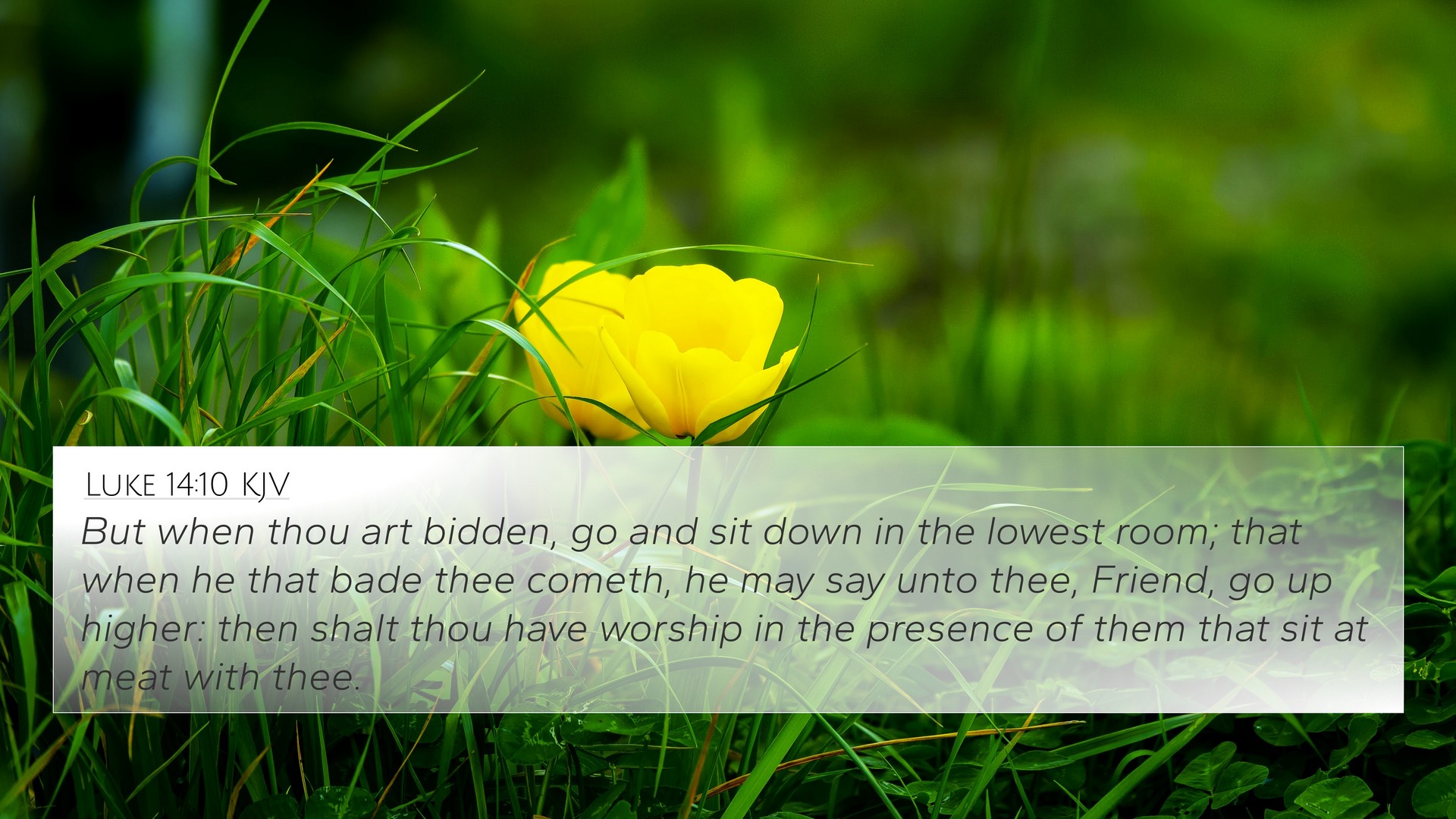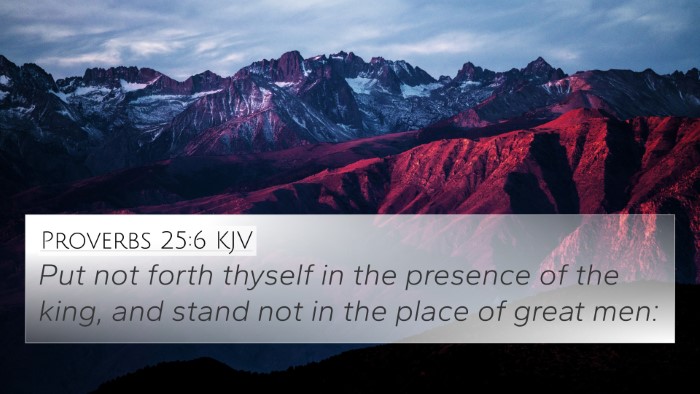Understanding Luke 14:10
Bible Verse: Luke 14:10 - "But when you are invited, go and recline at the last place, so that when the one who invited you comes, he may say to you, 'Friend, move up higher.' Then you will have honor in the sight of all who are at the table with you."
Summary of Meaning
Luke 14:10 provides a profound lesson on humility and the importance of positioning oneself appropriately in social and spiritual contexts. By suggesting that one should take the lowest place, the verse encourages believers to prioritize humility over seeking honor. This teaching aligns with the broader biblical theme of selflessness and the exaltation of the humble.
Commentary Insights
Matthew Henry's Commentary
Matthew Henry emphasizes the moral lesson in this verse, pointing out that humility leads to true honor. He notes that the act of reclining at the last place symbolizes the virtue of modesty, suggesting that those who do not seek the highest place can expect to be raised by the host—reflecting divine justice as God honors the humble.
Albert Barnes' Commentary
Albert Barnes highlights the social dynamics at play in Jesus' teaching. He underlines the importance of not putting oneself forward, as it can lead to embarrassment if one is asked to move down. Rather, accepting a lower position can result in gracious acknowledgment by others. This teaches us the value of humility and the risk of pride.
Adam Clarke's Commentary
Adam Clarke elaborates on the cultural context of first-century dining customs, noting that guests were often ranked by social status. His interpretation suggests that this teaching advocates for an attitude of deference and respect, urging believers to consider others higher than themselves. This posture fosters harmony in relationships and aligns with Christ's example.
Related Bible Verses
This verse connects deeply with several other scriptures that reinforce its teachings on humility and the nature of honor:
- Proverbs 25:6-7: "Do not put yourself forward in the king's presence or stand in the place of the great..."
- James 4:10: "Humble yourselves before the Lord, and he will exalt you."
- Matthew 23:12: "Whoever exalts himself will be humbled, and whoever humbles himself will be exalted."
- Philippians 2:3-4: "Do nothing from selfish ambition or conceit, but in humility count others more significant than yourselves."
- 1 Peter 5:6: "Humble yourselves, therefore, under the mighty hand of God so that at the proper time he may exalt you."
- Luke 18:14: "For everyone who exalts himself will be humbled, but the one who humbles himself will be exalted."
- Matthew 5:5: "Blessed are the meek, for they shall inherit the earth."
Cross-Referencing Biblical Texts
Understanding the connections between Bible verses enriches our study and interpretation of Scripture. The concept of cross-referencing Biblical texts is essential in enhancing one's understanding of themes like humility. Here are some tools and methods for effective Bible cross-referencing:
- Utilizing a Bible concordance to find related verses on humility.
- Engaging in cross-reference Bible study sessions with peers.
- Exploring the Bible reference resources available online and in print.
- Employing the Bible cross-reference system to study different books of the Bible.
- Using Bible chain references to connect related themes across different texts.
Practical Applications
The lessons from Luke 14:10 can guide our daily interactions, both socially and spiritually:
- Practice humility in daily life by valuing others before oneself.
- Seek opportunities to serve without the expectation of reward or recognition.
- Acknowledge the contributions of others in group settings to promote a spirit of unity.
Conclusion
Luke 14:10 embodies the essence of Christ's teachings on humility and the heart's posture before others and God. By internalizing this verse and its connections with other scriptures, believers can foster a more profound understanding of their faith and how it calls us to live in community with one another.







